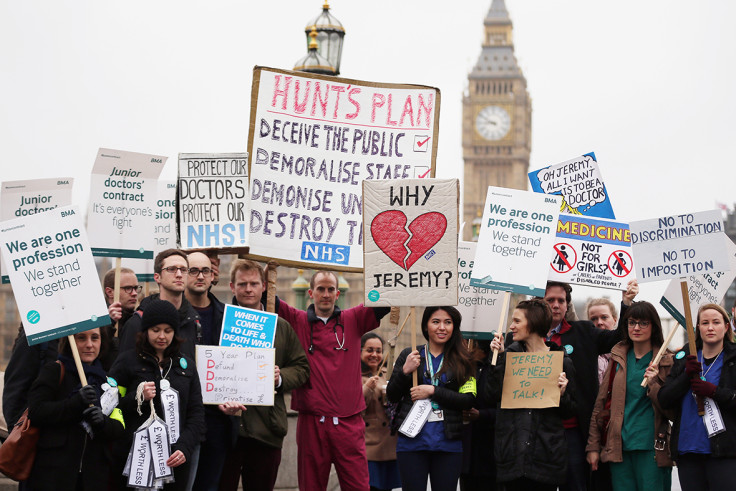Junior doctors strike: GMC warns hospitals will 'struggle' during historic walk-out

The General Medical Council (GMC) has warned hospitals will "struggle" to cope if junior doctors take part in the planned strike next week. Doctors below consultant level are walking out over a new contract that health secretary Jeremy Hunt plans to impose from August.
The industrial action is unprecedented as it will be the first full-scale walkout by doctors in the NHS's 68-year history. The British Medical Association (BMA) argues the new contract would cuts to pay and longer hours that will compromise the safety of both doctors and patients.
But on Tuesday (19 April) the GMC urged those intending to down stethoscopes to consider the wider impact. "The GMC cannot second guess the situation facing each doctor in training in England – that must be a matter for individual judgement," the body said in its updated guidance.
"But given the scale and repeated nature of what is proposed, we believe that, despite everyone's best efforts, some hospitals may struggle to cope. In these cases where local circumstances are particularly acute, the right option may be not to take action that results in the withdrawal of services for patients."
Last week, professor Sir Bruce Keogh, chief medical director of NHS England, said the strike was a culmination of years of frustration in the health service. "This is a watershed moment for the NHS – and a difficult time for the medical profession," he said.
"The current unrest is not just about contracts, but is the culmination of growing frustration over many years about the difficult conditions in which junior doctors work and train, and about the way that they are treated and valued by the multitude of organisations that constitute the NHS...Whatever the rights and wrongs of this complex dispute, this is a very serious state of affairs."
© Copyright IBTimes 2024. All rights reserved.






